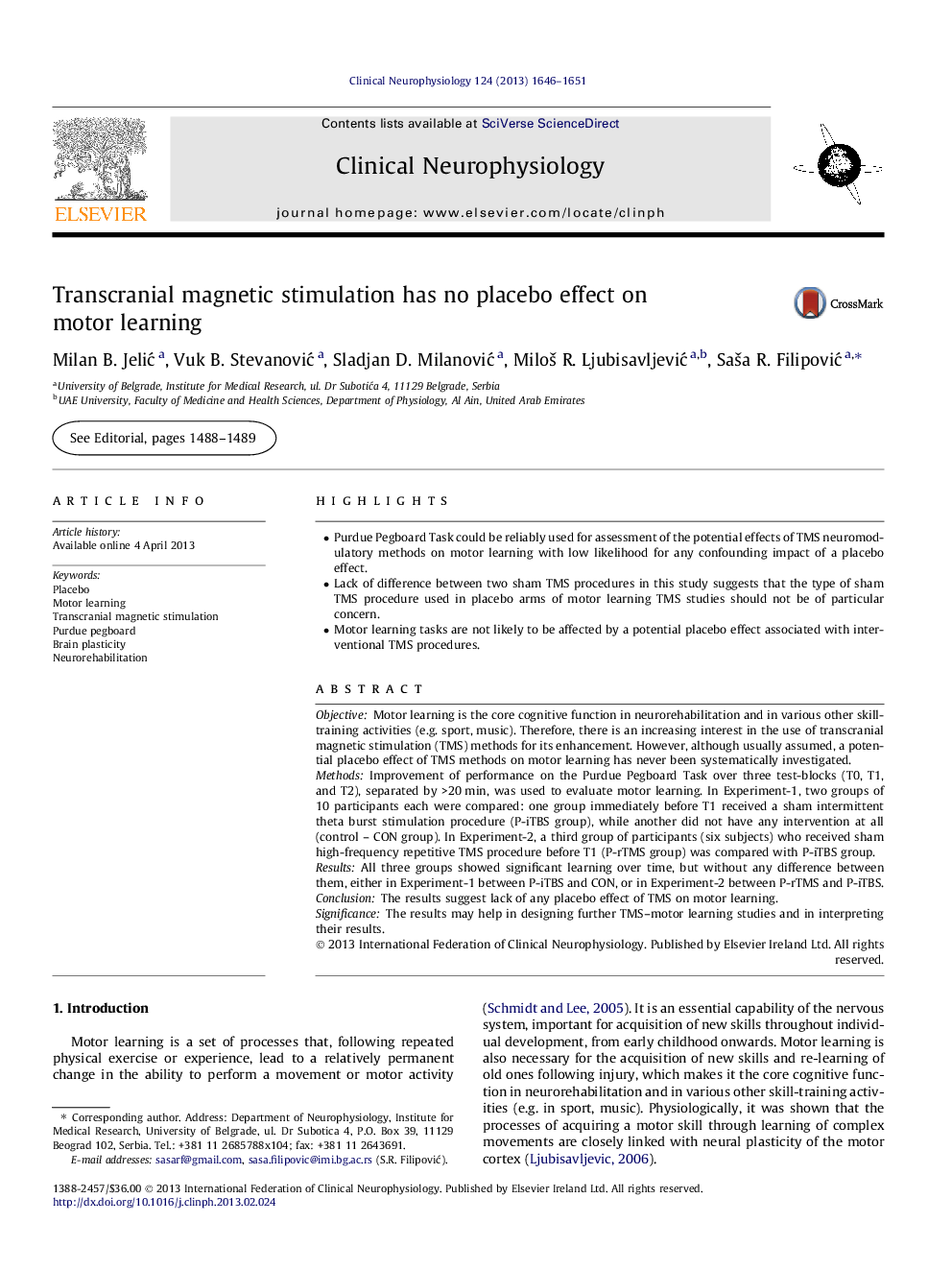| Article ID | Journal | Published Year | Pages | File Type |
|---|---|---|---|---|
| 3045191 | Clinical Neurophysiology | 2013 | 6 Pages |
•Purdue Pegboard Task could be reliably used for assessment of the potential effects of TMS neuromodulatory methods on motor learning with low likelihood for any confounding impact of a placebo effect.•Lack of difference between two sham TMS procedures in this study suggests that the type of sham TMS procedure used in placebo arms of motor learning TMS studies should not be of particular concern.•Motor learning tasks are not likely to be affected by a potential placebo effect associated with interventional TMS procedures.
ObjectiveMotor learning is the core cognitive function in neurorehabilitation and in various other skill-training activities (e.g. sport, music). Therefore, there is an increasing interest in the use of transcranial magnetic stimulation (TMS) methods for its enhancement. However, although usually assumed, a potential placebo effect of TMS methods on motor learning has never been systematically investigated.MethodsImprovement of performance on the Purdue Pegboard Task over three test-blocks (T0, T1, and T2), separated by >20 min, was used to evaluate motor learning. In Experiment-1, two groups of 10 participants each were compared: one group immediately before T1 received a sham intermittent theta burst stimulation procedure (P-iTBS group), while another did not have any intervention at all (control – CON group). In Experiment-2, a third group of participants (six subjects) who received sham high-frequency repetitive TMS procedure before T1 (P-rTMS group) was compared with P-iTBS group.ResultsAll three groups showed significant learning over time, but without any difference between them, either in Experiment-1 between P-iTBS and CON, or in Experiment-2 between P-rTMS and P-iTBS.ConclusionThe results suggest lack of any placebo effect of TMS on motor learning.SignificanceThe results may help in designing further TMS–motor learning studies and in interpreting their results.
